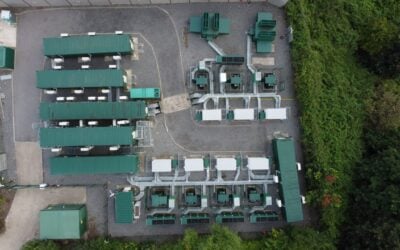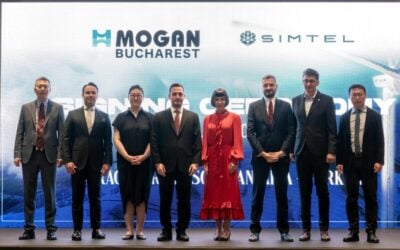
Hungary’s subsidy scheme for energy storage will drive huge growth in battery energy storage system (BESS) deployments over the next few years.
Hungary has 40MWh of grid-scale BESS online today but that will jump 3,400% to around 1,300MWh over the next few years thanks to opex and capex support from the government, said Pálma Szolnoki, senior research associate at trade body the Hungarian Battery Alliance.
Enjoy 12 months of exclusive analysis
- Regular insight and analysis of the industry’s biggest developments
- In-depth interviews with the industry’s leading figures
- Annual digital subscription to the PV Tech Power journal
- Discounts on Solar Media’s portfolio of events, in-person and virtual
Szolnoki was speaking on the ‘Hungary: The Business Case’ panel discussion at our publisher Solar Media’s Energy Storage Summit Central and Eastern Europe (CEE) 2024 which took place this week.
The scheme is a contracts for difference-like (CfD) programme which provides opex support in the form of a cap and floor, on top of an opex grant which can provide up to to 45% of a project’s cost. It was split into three windows based on project lifetime, of under 11 years, 11-29 years, and 30 years or more, and was recently concluded and “seemed very successful”, Szolniki said.
Half of the awarded BESS projects were won by the five largest energy companies in Hungary, she added. The vast majority of bidders were lithium-ion projects with one vanadium redox flow battery (VRFB) also taking part.
The programme was approved by the EU in June last year, under its Temporary Crisis and Transition Framework, and will be part funded from the bloc’s Recovery and Resilience Facility, and partly by a Modernisation Fund.
The country has 6GW of solar online today, which is expected to double, and electricity demand is also growing as its industry grows, including electric vehicle (EV) manufacturing, independent power producer (IPP) Greenvolt’s head of storage Antonio Montoto said.
Moderator Nikita Chandrashekar, director at advisory Augusta & Co, said the scheme made Hungary an attractive market: “It is probably one of the most advanced subsidies schemes to bring energy storage forward. So from a revenue perspective, perhaps, unlike some other markets, the business case in Hungary seems pretty well developed.”
The substantial growth expected means that banks and lenders are worried about cannibalisation of prices, Szolnoki added, though Montoto said that ‘saturation’ was probably a better word to describe what might happen. Szolnoki agreed, saying that cannibalisation was much further away.
Grid-scale BESS in Hungary covered by Energy-Storage.news include a 7.68MWh system provided by Tesla in 2022 and a 12MWh project that China-based Kehua Tech won a contract for this year.






